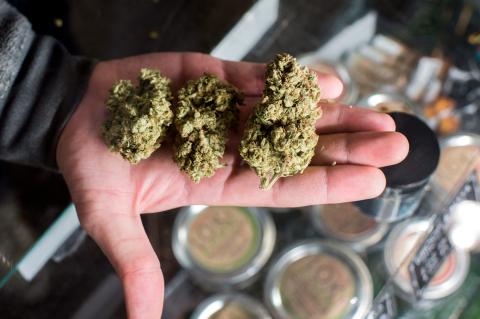Covid-19 Is Helping Make 2020 A Record Year For Cannabis Sales
While the COVID-19 pandemic has damaged a wide range of industries around the world, it looks like cannabis might not be one of them. An industry white paper last week shows that the cannabis industry’s 2020 growth is currently outpacing that of 2019. Hiring for cannabis companies os also already on the rebound, and retailers are actually purchasing more product from companies than they were prior to the pandemic.







